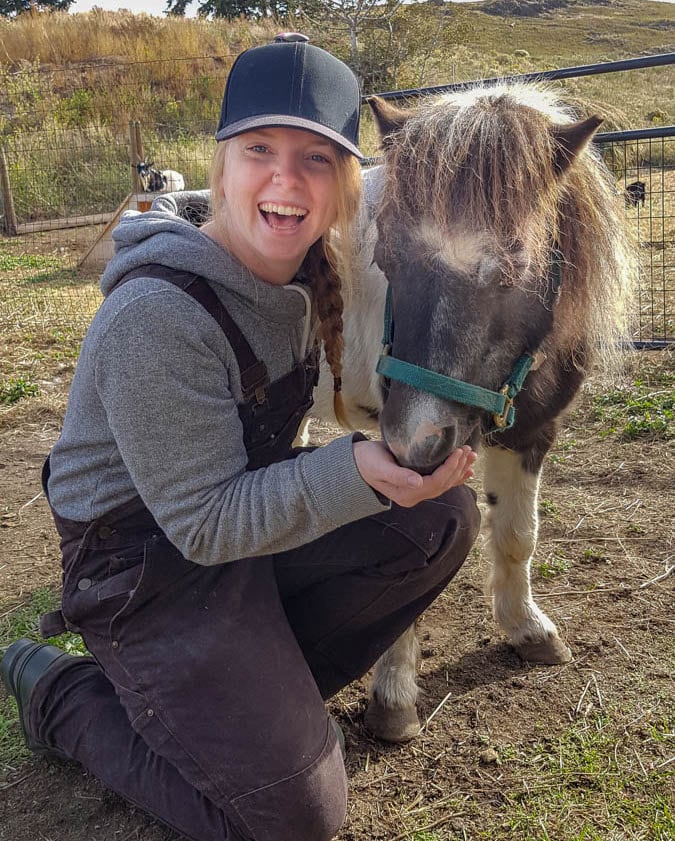Science Menu
Veterinary Technology
Train to become a Registered Veterinary Technologist (RVT), a professional in the field of veterinary medicine. Thompson Rivers University’s Veterinary Technology program (both Onsite and Open-Learning) is accredited by the Canadian Veterinary Medical Association (CVMA) and is recognized by all provincial associations. The three-year open-learning program is also accredited by the Ontario Association of Veterinary Technicians (OAVT).
Our comprehensive program embraces both academic and practical applied learning. There is a two-year on-campus program, a three-year Open Learning program and an eight-month distance education animal welfare certificate program. A number of satisfying career options in the animal care industry are available for program graduates.
Program options
Two-year on-campus diploma for veterinary technologists
The TRU Veterinary Technology campus diploma is a two-year, four-semester program. It is a tough, but rewarding full-time program that includes a minimum of 30 hours per week of classroom, laboratory work and animal-care duties.
Students experience daily, hands-on learning in areas such as:
- Diagnostic imaging
- Anesthesia
- Critical care
- Surgical assistance
- Dentistry
Hands-on learning is facilitated with on-site small animals at dedicated TRU managed facilities. Large animal work takes place at the TRU farm where students gain experience with livestock. Students also gain experience working with wildlife and birds through various community partnerships. The TRU RVT diploma prepares students to successfully write the Veterinary Technician National Exam (VTNE) and become registered with their provincial association as an RVT.
Learn moreThree-year open-learning diploma for veterinary technologists
Study and complete your education from anywhere in Canada, with no on-campus requirements. The student must be a paid employee working in a Canadian veterinary clinic for a minimum of 260 hours per semester while enrolled in the program.
Learn moreEight-month distance-education animal welfare certificate
A program for animal caregivers interested in upgrading their work skills or for individuals interested in a career in animal welfare. It was jointly developed by TRU and the BC SPCA.
Learn moreOpportunities for students
Campus students have daily hands-on experiences with small animals in the teaching facility on campus. Large animal work is carried out in a separate facility where students develop hands-on experience with livestock, wildlife and birds.
Distance students gain valuable, hands-on experience working in a veterinary clinic with the flexibility to complete course work at their own pace.
Careers for graduates
A registered veterinary technologist works under the supervision of veterinarians and veterinary scientists in a variety of areas including:
- Private veterinary clinics for large and small animals
- Exotic animals and wildlife rehabilitation
- Specialty referral clinics
- Anesthesia and surgical assistance
- Industry pharmaceutical sales
- Nutrition
- Research
- Clinical pathology and clinic management
Student Learning Outcomes
Upon successful completion of the Veterinary Technology program, graduates are able to:
Knowledge and Theory
- Utilize the theoretical and practical knowledge of veterinary medicine to apply best practices pertaining to veterinary diagnostics, biosecurity, zoonosis, and epidemiology.
- Develop an awareness of the scope of legislation governing care and husbandry of animals.
Practical Skills
- Competently perform technical veterinary nursing care.
- Possess effective animal handling, nursing and husbandry skills to facilitate physical examinations, sample collection and administration of medications in a safe and humane manner.
- Prepare, administer and critically evaluate anesthesia, analgesia and fluid therapy in a safe, effective manner.
Technical Skills
- Demonstrate technical competency in the use and maintenance of equipment necessary to carry out diagnostics and treatment in all areas including medicine, surgery, dentistry, radiology and laboratory sciences.
Critical Thinking
- Critically evaluate laboratory and diagnostic results for validity and urgency, responding appropriately.
- Recognize behavioral cues and their importance in determining safe, humane, effective care when working with a variety of species.
- Be adaptable and flexible to alternative approaches in procedural systems and practical applications while maintaining animal health care excellence.
Ethics and Professionalism
- Function effectively as a contributing member of the multi disciplinary Veterinary Health Care Team.
- Practice lifelong learning to ensure current knowledge and practices within the veterinary industry.
- Provide the highest standard of professional care while supporting the human-animal bond.
Communication
- Professionally communicate with clients and veterinary care professionals using effective verbal, non-verbal, written and electronic skills.
- Advocate for the health and well-being of their patients.
- Maintain all records following veterinary office procedures and regulated standards.


